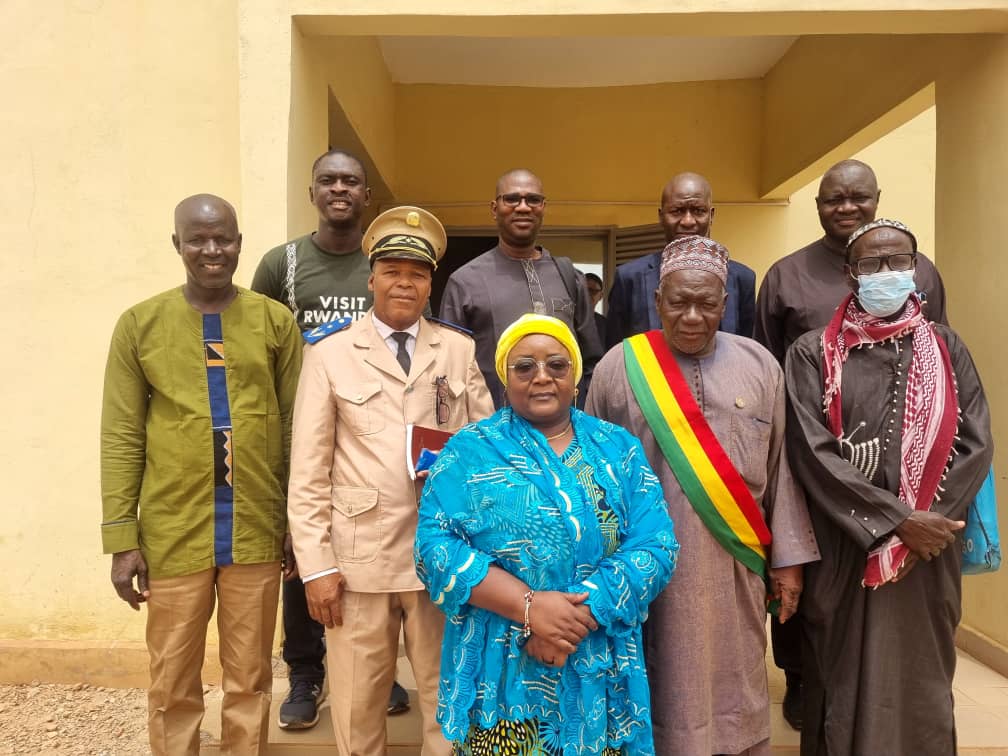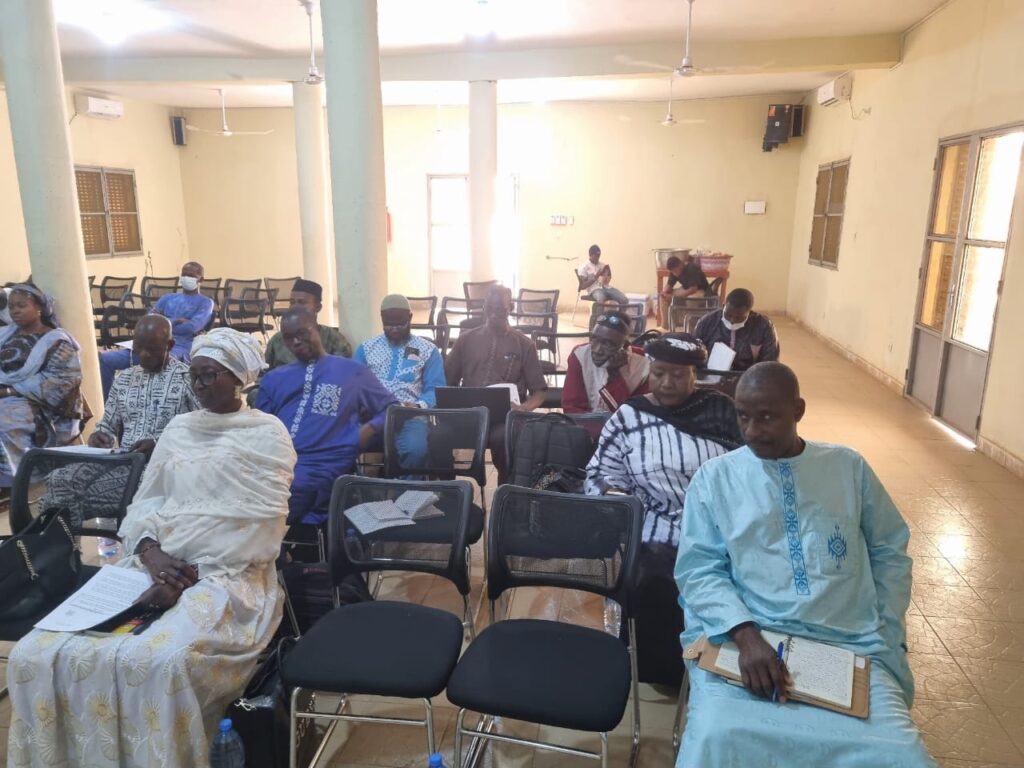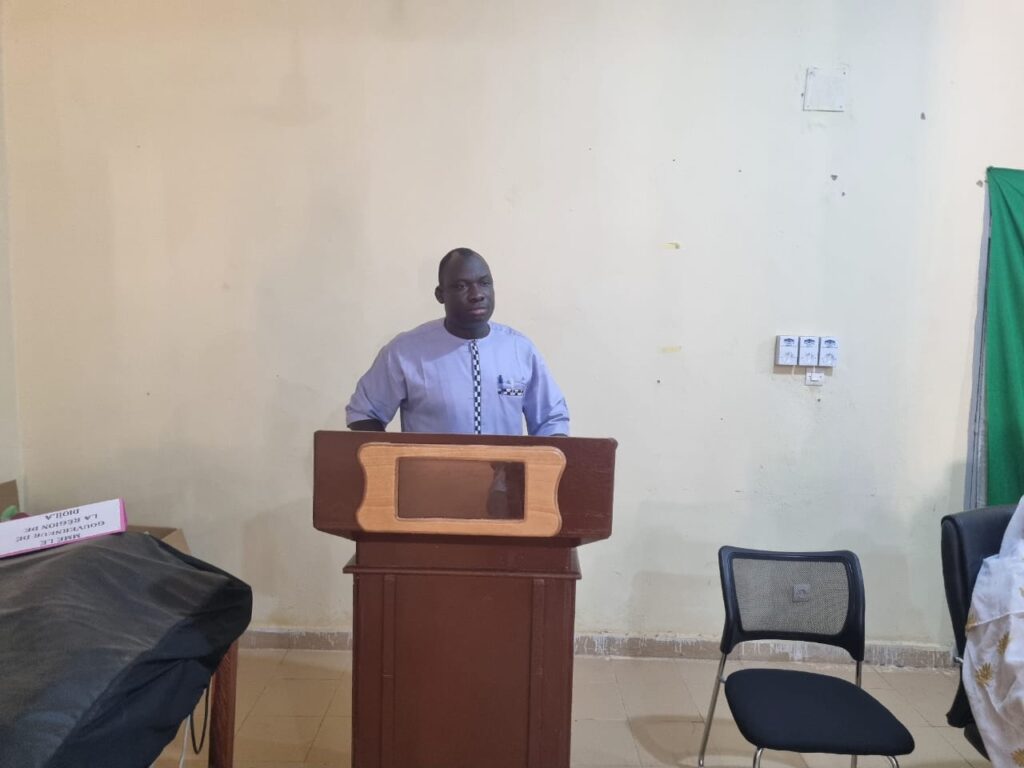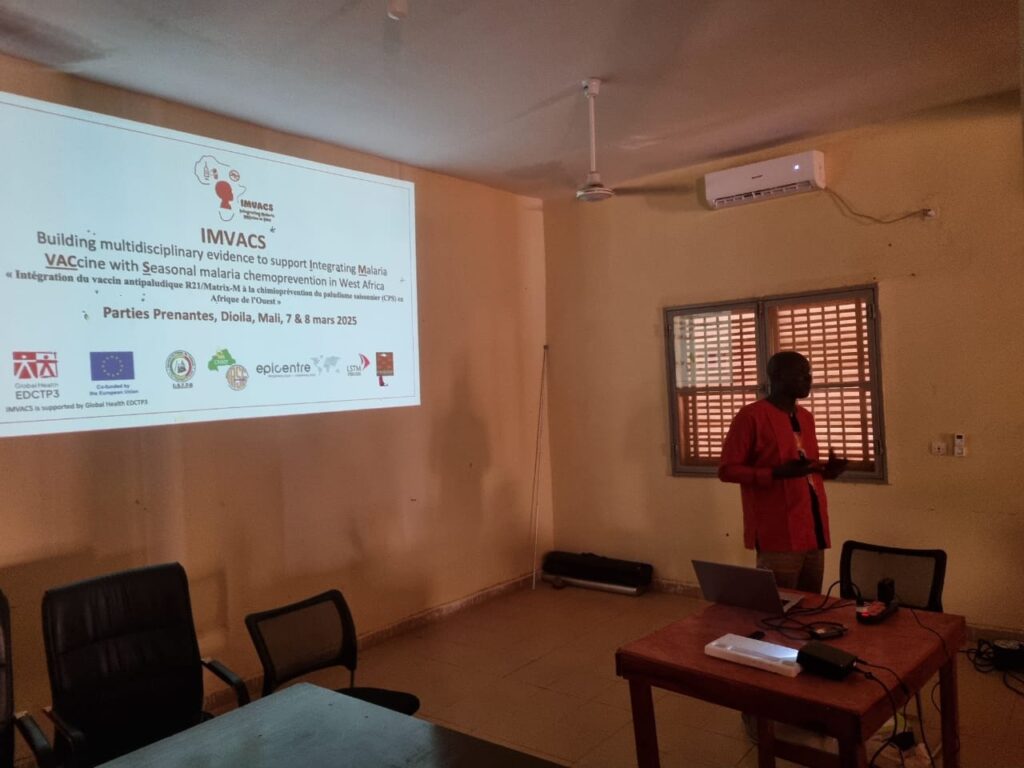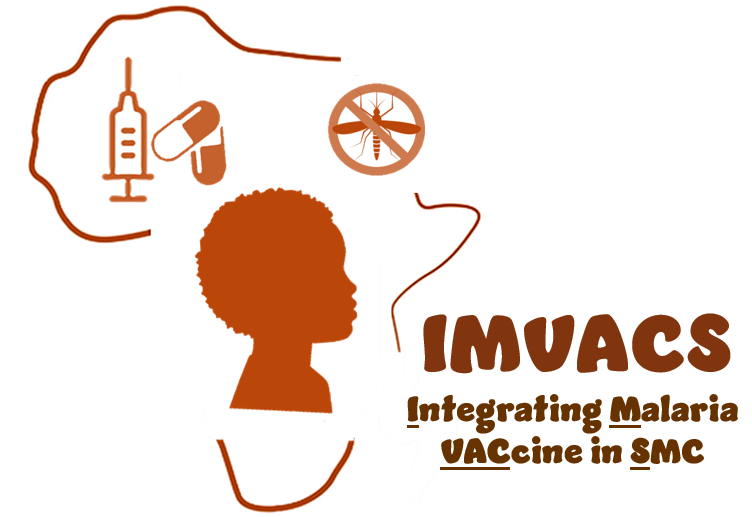As part of Work Package 6 (WP6) about formative research, acceptability, feasibility, and cost-effectiveness, the IMVACS Consortium organised a stakeholders’ workshop on 7th and 8th March 2025. The main objective of the meeting was to provide comprehensive information about the study and to collaboratively co-design intervention implementation strategies that are tailored to the specific context of the Dioïla district, where the study will be conducted in Mali.
The meeting was organised by the National Malaria Control Programme (NMCP) of Mali, in close collaboration with the University of Sciences, Techniques and Technologies of Bamako (USTTB) team, led by Professor Kassoum Kayentao, and the Liverpool School of Tropical Medicine team, in charge of WP6.
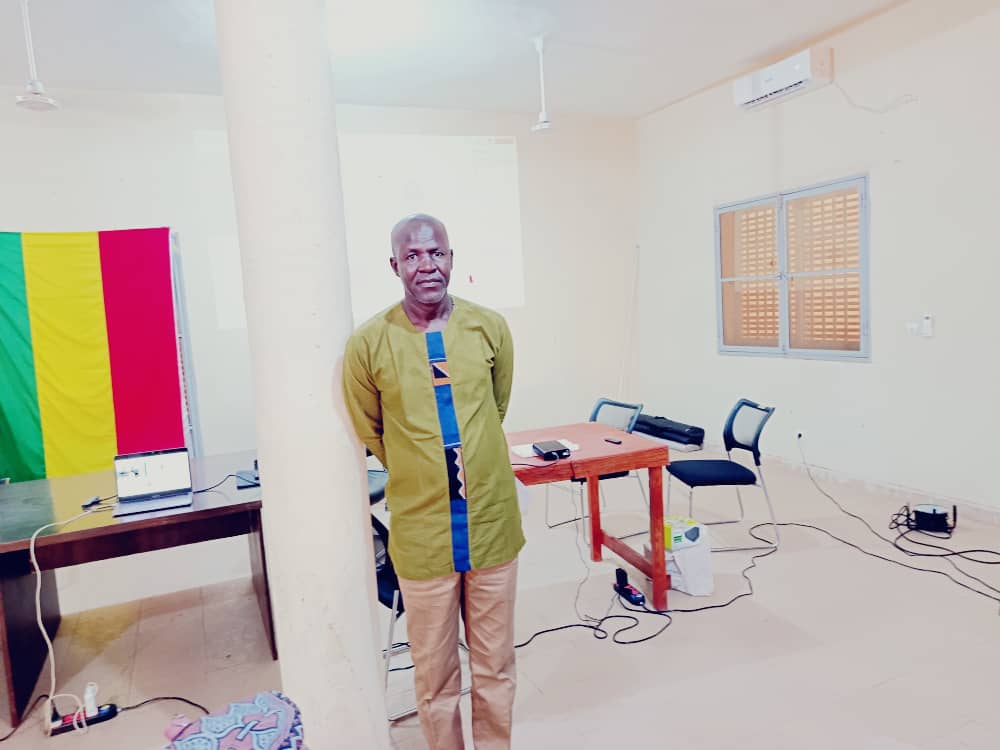
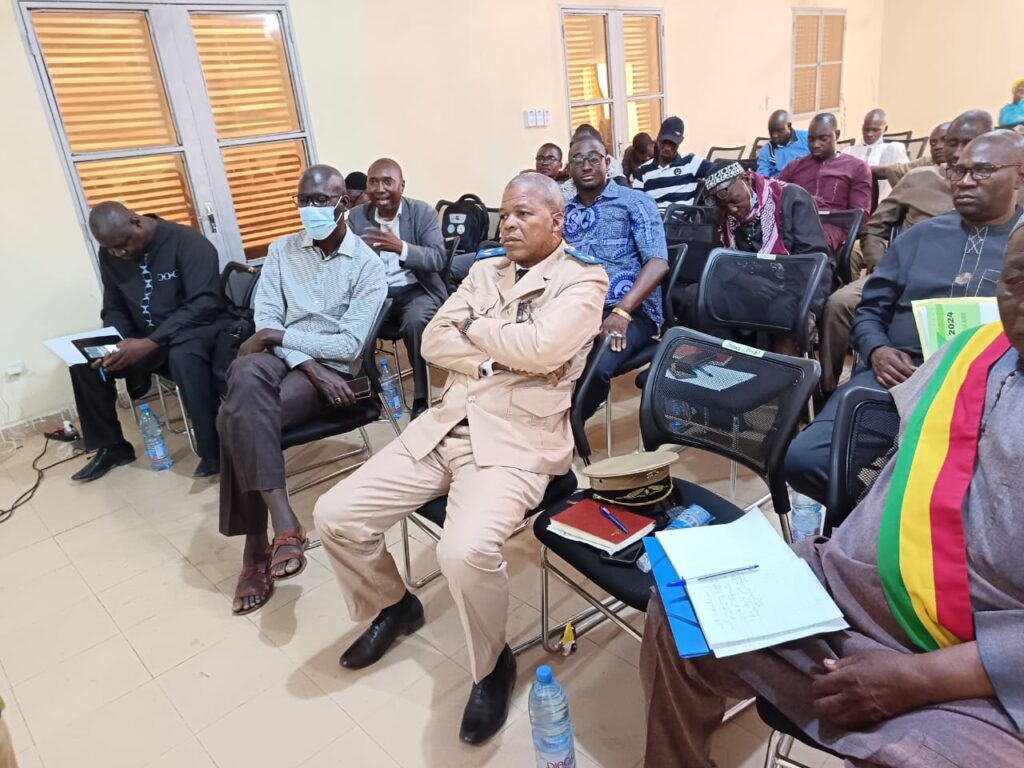
The workshop took place in the meeting room of the Governorate of Dioïla and brought together 55 participants attending both in person and virtually. The audience included key stakeholders at national, regional, and local level involved in the planning and implementation of malaria vaccination in Mali.
At National level:
- NMCP Director
- Head of the Epidemiological Surveillance and Research Division of the NMCP
- Head of the Malaria Prevention and Management Division of the NMCP
- Program Officer of the Malaria Prevention and Management Division of the NMCP
- National Immunisation Centre (CNI) Director
- Deputy head of CNI
- Planning, monitoring, evaluation and operational research officer of CNI
At Regional level:
- Economic and Financial Affairs Advisor (CAEF) to the Governor of Dioïla
- Regional Director of Koulikoro Health District
- Responsible of Malaria control activities of Koulikoro Health District
- Medical Officer in charge of the activities of the Expanded Program on Immunization (EPI) of Koulikoro Health District
At local level (Dioïla health district):
- The representative of the Prefect of Dioïla
- The President of the Association of Municipalities (the Mayor)
- President of FELACASCOM (Representative of the communities of the district)
- Chief Medical Officer of the Health District
- Malaria Focal Point
- EPI Focal Point
- Information health System Officer
- Epidemiological Surveillance Officer
- Head of the Local Department of Social Development and Solidarity Economy of Dioïla.
- Technical Directors from 10 Community Health Centers (CSCom): Banco, N’Gara, Sénou, N’Djifina, Baoufoulala, N’Tobougou, N’Tjila Finiana, N’Golobougou, Kola, Dégnékoro.
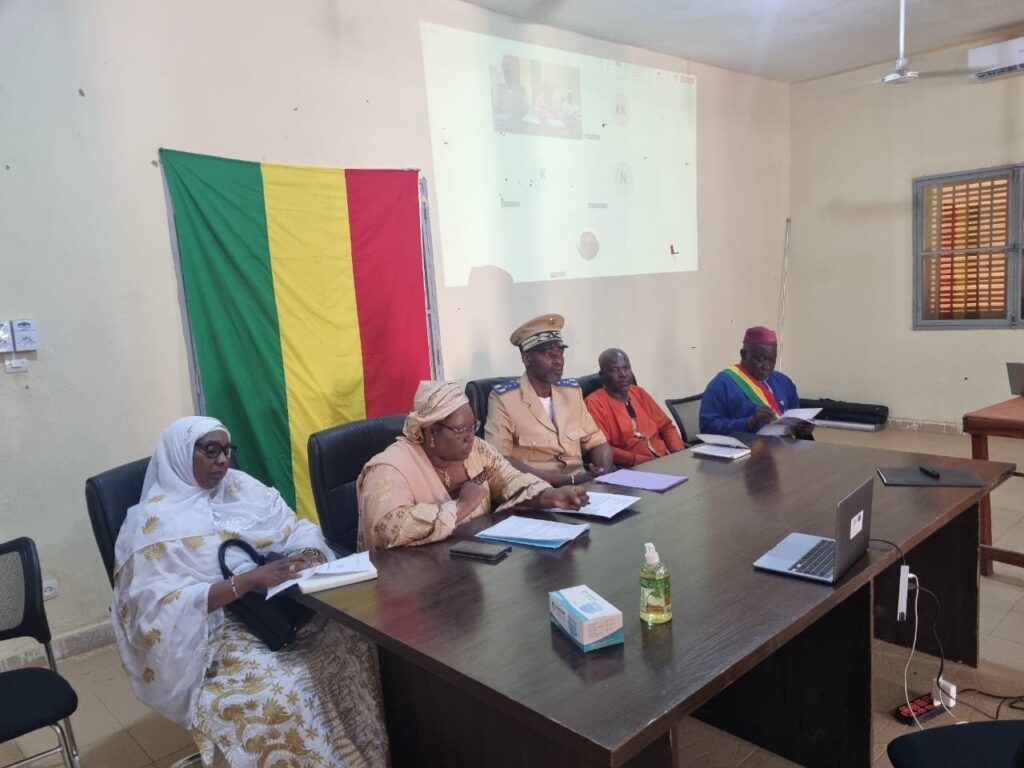
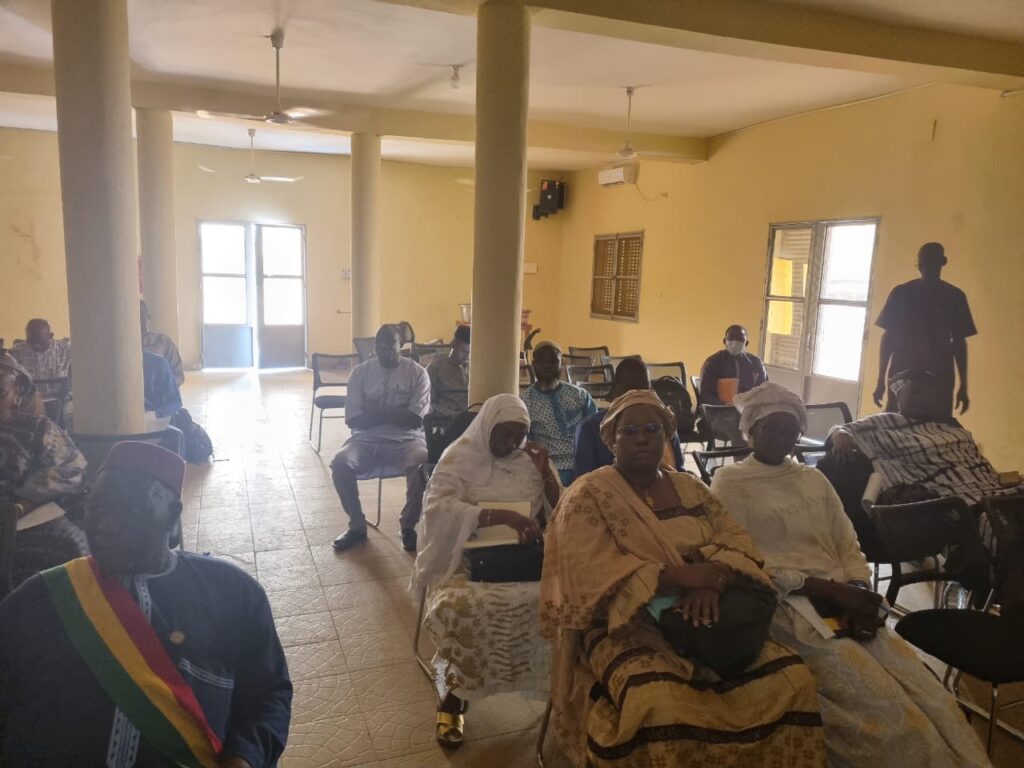
Following opening remarks, a participatory discussion was held with stakeholders, covering critical areas related to the planned study, including:
- Implementation of the integrated intervention (Seasonal Malaria Chemoprevention + R21 vaccination)
- Key feasibility questions for the trial
- Delivery mechanisms and logistical arrangements
- Eligibility criteria and documentation processes
- Coordination and collaboration between the different actors
- Supportive interventions required for implementation
Before the closing ceremony, the group discussed the next steps and exchanged practical recommendations to ensure the successful implementation of the study. The workshop ended with closing notes from the representative of the Prefect of Dioïla.
